The technology and innovation panel focuses on the challenges and opportunites for technological advancement in the context of trade friction and technological competition. The panel will address topics like artificial intelligence, cybersecurity, and aerospace. It is not only important at the level of technology and trade, but also directly related to the interaction between China and teh U.S. at the level of national security and strategy. We hope to provide inspiration for releasing technologic inclusiveness between China and the U.S., alleviating the problem of “technological decoupling”, and acheiving broad international cooperation in science and technology.
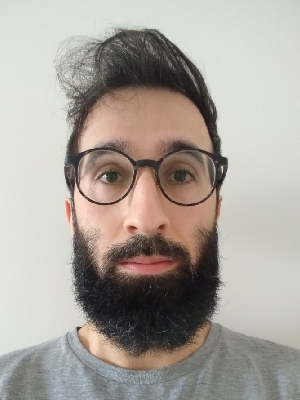
Dr. Mustafa Misir holds a B.Sc. and M.Sc. in computer engineering from Yeditepe University, Turkey, and a Ph.D. in computer science from KU Leuven, Belgium. He has published over 40 papers in prestigious international conferences and journals and is an active participant in the IEEE Computational Intelligence Society and technical committees of conferences like AAAI and GECCO. Dr. Misir’s research focus on automated algorithm design, data science, and operations research. He has previously worked as faculty member and department chair at Istinye University, postdoctoral researcher at INRIA Saclay, Singapore Management University, and the University of Freiburg. Additionally, he has served as a visiting researcher at the University of Zurich and Universitat Politècnica de Catalunya / BarcelonaTech. Dr. Mustafa Misir is currently a faculty member at Duke Kunshan University in the College of Computer Science and Technology. His teaching interests in computer science, interdisciplinary courses, industrial engineering, and operations research.

Dr. Kenneth S. Rogerson is a Professor of the Practice at Duke University’s Sanford School of Public Policy. Rogerson holds a PhD in Political Science from the University of South Carolina, with a focus on international relations, international communications, and media policy. He has a Master of Arts degree in International Relations and a Bachelor of Arts in Journalism and European Studies from Brigham Young University. His dissertation examined the evolution of U.S. foreign information policy. He has held leadership positions in professional associations, including chairing the American Political Science Association’s Information Technology and Politics Section and the International Studies Association’s International Communication Section. He is the former Research Director of the DeWitt Wallace Center for Media and Democracy at Duke University. Currently, he serves as the Director of Graduate Studies for the Sanford Master’s of Public Policy Program and the Director of Duke’s Policy Journalism and Media Studies Certificate Program. The journal he edited, Global Governance, was recognized as the Best New Journal in the United States in Business, Social Sciences, and the Humanities by the Association of American Publishers. Rogerson has received accolades for his teaching, including the Excellence in Teaching Award during his studies at the University of South Carolina.
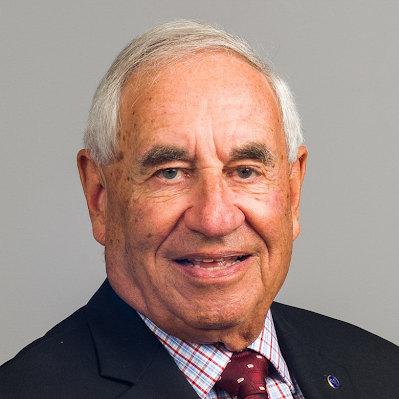
Arie Y. Lewin is a Professor Emeritus of Strategy and International Business at Duke University, Fuqua School of Business. He is a Fellow of the Academy of International Business and has received the Joanne Martin Trailblazer Award from the Academy of Management. He has held visiting research positions at IESE and RSM Erasmus University, where he is also an ERIM Senior Fellow. Professor Lewin serves as the Editor-In-Chief of Management and Organization Review (MOR). He was previously the Editor-in-Chief of the Journal of International Business Studies (JIBS) and the founding Editor-in-Chief of Organization Science. Additionally, he organized the Organization Science Winter Conference from 1994 to 2008. His research focuses on strategic renewal of organizations, including adaptation, selection, co-evolutionary systems, emergence of new organizational forms, and adaptive capabilities. He leads the Offshoring Research Network (ORN) project, which examines the globalization of organizations and tracks firm strategies and experiences related to global delivery of business functions and services. His current research focuses on the globalization of innovation.

Xiuyuan Cheng is an Assistant Professor at Duke University. He develops theoretical and computational techniques to solve problems in high-dimensional data analysis, signal processing, and machine learning.
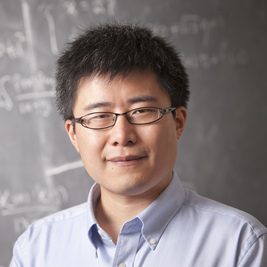
Jianfeng Lu is an applied mathematician specializing in mathematical analysis and algorithm development for computational physics, theoretical chemistry, materials science, and related fields. His research interests encompass electronic structure and many-body problems, quantum molecular dynamics, multiscale modeling and analysis, rare events and sampling techniques
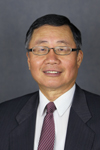
David Huang finished his BS in physics in National Taiwan Normal University and gained PhD in high energy physics in Temple University, Philadelphia. Before Joining in Duke Kunshan University, Prof. Huang was the chief physicist and RSO, faculty of Memorial Sloan Kettering at Rockville Centre and he was an associate attending physicist in the department of medical physics at MSKCC. Prof. Huang is an adjunct professor at University of Missouri and a visiting professor at MP Program at Tsing-Hwa University, Beijing. He was a visiting professor at Beijing University and an associate professor at Chang-Gung University, Taiwan. Prof. Huang’s research interests include dosimetry and QA in radiotherapy; particularly in in-vivo dosimetry (glass dosimeter), modern radiotherapy techniques (Image-guided intensity-modulated radiotherapy, stereotactic body radiotherapy) and modern radiotherapy modalities (TrueBeam, Gamma Knife, CyberKnife, and Tomotherapy).
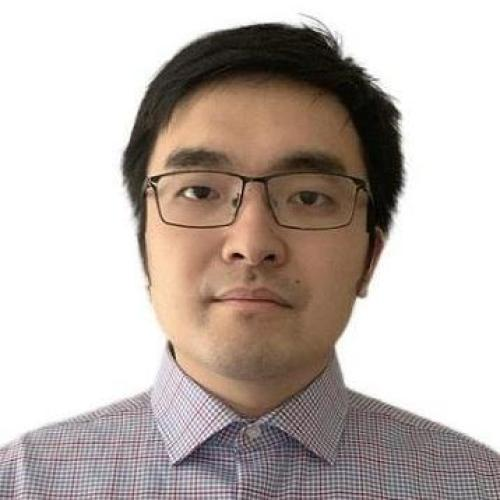
Dr. Dongmian Zou holds a B.S. degree in Mathematics from the Chinese University of Hong Kong (2012) and Ph.D. degree in Applied Mathematics and Scientific Computation from the University of Maryland, College Park (2017). He previously served as a post-doctorate researcher at the Institute for Mathematics and its Applications and the School of Mathematics at the University of Minnesota, Twin Cities (2017-2020). Dr. Zou joined Duke Kunshan University in 2020 as an Assistant Professor of Data Science in the Division of Natural and Applied Sciences. He is affiliated with the Zu Chongzhi Center for Mathematics and Computational Sciences (CMCS) and the Data Science Research Center (DSRC). Currently, his research focuses on applied harmonic analysis, machine learning, and signal processing. Dr. Dongmian Zou’s interests include geometric deep learning, robustness, anomaly detection, and applications in areas like communication, circuits, and medical imaging.
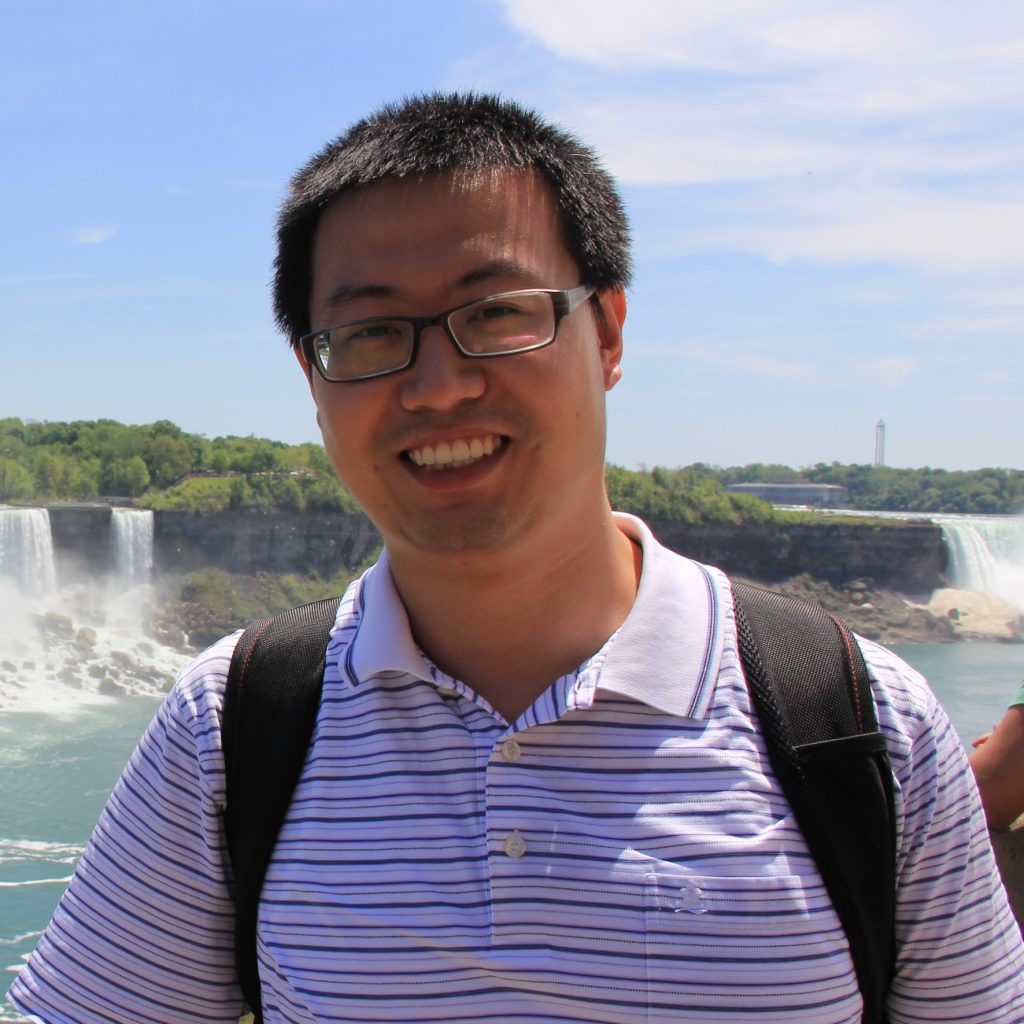
Dr. Peng Sun is an Assistant Professor of Data Science at Duke Kunshan University. He holds a Bachelor of engineering in electrical engineering and automation from Soochow University, an M.Sc. in electrical and computer engineering from Lakehead University, Canada, and a Ph.D in electrical and computer engineering from the University of Ottawa, Canada. He also served as a postdoc researcher at the University of Ottawa for 4 years prior to joining Duke Kunshan. His current research focuses on AI-assisted intelligent transportation systems, internet of vehicles, wireless sensor network, and mobile vehicular cloud/edge computing. He is the author of more than 40 peer-reviewed journals and conference papers, receiving numerous awards, while also participating in research supported by Canada’ National Defense and other prestigious organizations. He is an active reviewer for journals and has served as technical program committee co-chair/member for top conferences. He enjoys teaching about topics like numerical methods for engineering, machine learning, and data and computer communications.
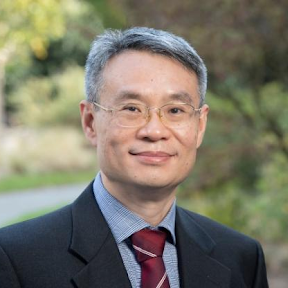
Yiran Chen is the John Cocke Distinguished Professor of Electrical and Computer Engineering at Duke University. He is also the co-director of Duke Center for Computational Evolutionary Intelligence (DCEI). His research focuses on new memory and storage systems, machine learning and neuromorphic computing, and mobile computing systems. Dr. Chen has published 1 book, approximately 600 technical publications, and holds 96 US patents. He has received numerous awards, including the IEEE CASS Charles A. Desoer Technical Achievement Award and the IEEE Computer Society Edward J. McCluskey Technical Achievement Award. He is a Fellow of AAAS, ACM, and IEEE, and serves as the chair of ACM SIGDA. He is the director of the NSF AI Institute for Edge Computing (Athena) and the NSF IUCRC for Alternative Sustainable and Intelligent Computing (ASIC). Dr. Chen serves as the Editor-in-Chief of the IEEE Circuits and Systems Magazine.
